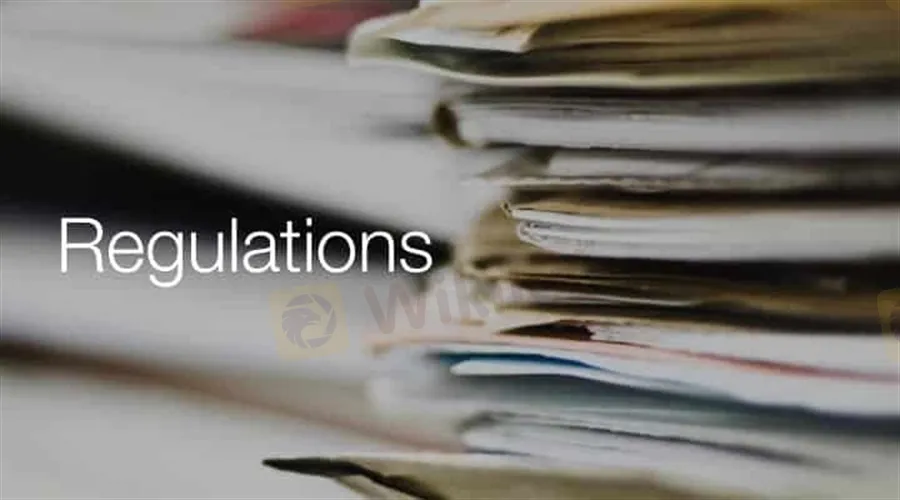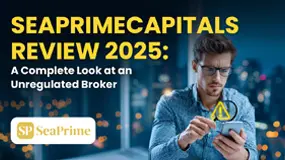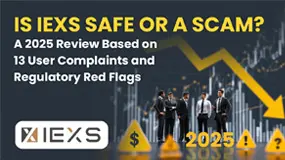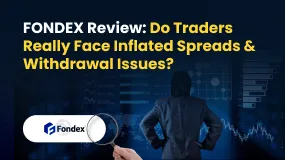简体中文
繁體中文
English
Pусский
日本語
ภาษาไทย
Tiếng Việt
Bahasa Indonesia
Español
हिन्दी
Filippiiniläinen
Français
Deutsch
Português
Türkçe
한국어
العربية
The Days of Regulatory Arbitrage Are Numbered. Will Brokers Be Forced to Shut Down?
Abstract:If the pandemic has taught us anything, it is that borders are imaginary. A virus that appears in China today can be in the US tomorrow, and a “South-African” variant can infect people all over Europe.

The overlooked problem in financial trading – cross-border regulation and enforcement.
A look at what the Dutch and French regulators are trying to achieve.
Imaginary borders
This is why effective handling of the coronavirus requires international cooperation. The novel coronavirus is a global, cross-border phenomenon, and as such necessitates action taken by a large number of authorities in multiple locations at once.
Another prominent cross-border phenomenon of the last two years – other than the coronavirus itself – is online trading of financial instruments. This has grown to a magnitude, that prompts regulators to deal with a previously somewhat overlooked problem in financial trading – cross-border regulation and enforcement.
Regulators on the offensive
The latest development in this area can prove, in my opinion, to be no short of an earthquake in the EU. In January 2022, the French and Dutch financial regulators, (the AMF and the AFM) came out with a position paper, which can potentially start a regulatory war – their proposal is to give enforcement powers, not to the regulator where the investment firm is licensed; but to the one in whose jurisdiction live the majority of the firms clients.
The backdrop to this proposal is depicted in the position paper. “The AFM and AMF increasingly observe practices of financial firms obtaining a license and European passport in other EU member states than that of their target audience. The AFM and AMF note that such firms are overrepresented in offering high-risk products (such as CFDs) as well as in terms of the complaints received from consumers on their practices”.
Behind these well-mannered words lies a clear accusation – there are firms who mis-use the EU passporting regime. They get their license in one jurisdiction; but conduct most of their business in another. This, according to the two regulators, makes it hard on both the “home” regulator (where the firm is licensed) and the “host” one (where the clients are) to supervise and enforce effectively. Between the lines another accusation lurks – some regulators are more lenient on firms (perhaps as they know those firms will do very little business in their own jurisdiction), therefore these firms choose to “set up shop” there.
“We therefore propose to reconsider whether the physical presence of a firm in a host Member State should still determine the home/host division of responsibilities. A future-proof cross-border supervisory set-up is best suited by placing responsibilities for conduct supervision where they are most efficient: with the NCA of the host Member State”.
Other proposals the AMF and AFM present are “the introduction of a requirement for NCAs to withhold, or withdraw, authorisation where a firm has clearly chosen to place its seat in a particular Member State in order to avoid stricter standards of the Member States where it will carry out most of its activity”, and a “centralised and up-to-date database on cross-border activities at the ESA level”.
Cracks in the Union
The meaning of this proposal is double. First, it is a clear admittance that the passporting system does not work; and should be nearly-abolished, and replaced by a “proxy-regime”.
In essence, say the two regulators, we cannot protect our citizens; and we cannot trust other regulators to do so as well; therefore we want the power back in our hands. It‘s a crack in the European Union – another crack, it should be said, exposed by the pandemic, which saw European borders closing and respirators withheld despite the clear cry of help from some countries. (And of course, we shouldn’t forget the giant tear caused by Brexit. We certainly do not want the public in another EU country to lose confidence in the EUs ability to safeguard them).
The second and practical meaning of this proposal is the eradication of small countries as licensing centres. No more regulatory arbitrage.

Disclaimer:
The views in this article only represent the author's personal views, and do not constitute investment advice on this platform. This platform does not guarantee the accuracy, completeness and timeliness of the information in the article, and will not be liable for any loss caused by the use of or reliance on the information in the article.
Read more

Seaprimecapitals Review 2025: A Complete Look at an Unregulated Broker
Seaprimecapitals presents a common problem for today's traders: it offers easy-to-use features and low starting costs, but it lacks important financial regulation. When traders research this broker, it looks good at first glance with features such as a $10 minimum deposit and the popular MT5 trading platform. However, these features come without the investor protections that regulated brokers provide. This review gives you a complete and fair analysis based on available information to help you make a smart decision.

Is IEXS Safe or a Scam? A 2025 Review Based on 13 User Complaints and Regulatory Red Flags
You're asking a direct and important question: Is IEXS safe or a scam? As someone who might trade with them or already does, this is the most important research you can do. While IEXS says it is a global broker with over ten years of experience, a detailed look at its regulatory status and many user reviews shows serious warning signs that cannot be ignored. The evidence suggests a high-risk situation for traders' capital. This review will examine the available information, from official regulatory warnings to concerning first-hand user complaints, to give you a clear and fact-based view of the risks involved in trading with IEXS. Our goal is to give you the facts you need to make a smart decision.

Having Trouble Getting Your Funds Out of IEXS? A Simple Guide to Delays and Solutions
Are you having trouble withdrawing funds from your IEXS account or facing delays getting your funds? Not being able to access your own capital is one of the most stressful situations any trader can face. It breaks down your basic trust with a broker. This isn't just annoying - it's a serious problem that can mess up your financial plans and cause a lot of worry. This guide goes beyond basic advice. We'll look at real user experiences and official regulatory information to give you clear answers. Our goal is to help you understand why IEXS withdrawal problems happen and show you practical steps you can take. We understand your concerns and want to give you the information you need to handle this tough situation.

FONDEX Review: Do Traders Really Face Inflated Spreads & Withdrawal Issues?
Does FONDEX charge you spreads more than advertised to cause you trading losses? Does this situation exist even when opening a forex position? Do you witness customer support issues regarding deposits and withdrawals at FONDEX broker? Does the customer support official fail to explain to you the reason behind your fund loss? In this article, we have shared FONDEX trading complaints. Read on!
WikiFX Broker
Latest News
IEXS Review 2025: A Complete Expert Analysis
IEXS Regulation: A Complete Guide to Its Licenses and Safety Warnings
【WikiEXPO Global Expert Interviews】Ashish Kumar Singh: Building a Responsible and Interoperable Web3
CySEC Flags 21 Unauthorized Broker Websites in 2025 Crackdown
CQG Partners with Webull Singapore to Power the Broker’s New Futures Trading Offering
WinproFx Withdrawal Problems: A Complete Look at Delays and User Reports
Factory Orders Data Show Rebound In August
Interactive Brokers Expands Access to Taipei Exchange
Simulated Trading Competition Experience Sharing
WinproFx Regulation: A Complete Guide to Its Licensing and Safety for Traders
Currency Calculator




